5 times Doctor Who broke the boundaries with its cast

Doctor Who would be nothing without his companion, usually an earth-born assistant to offer a little bit of humanity to the Time-Lord's (or lady's) adventures through time and space.
Jodie Whittaker was recently announced as the 13th Doctor Who, but now rumours suggest actor, singer and game show host Bradley Walsh will be joining her in the TARDIS as her companion.
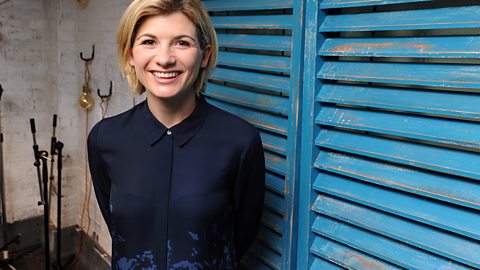
Has the 13th Doctor Who found her companion?
If so, he is an unexpected choice...
It's not the most obvious choice, but Doctor Who has never been known for being obvious. Here's five times the show broke boundaries with its casting and its characters in recent memory.
John Barrowman: The first gay character

John Barrowman first appeared as Jack Harkness during Christopher Eccleston's short-lived time in the TARDIS. His character was introduced in 2005 and proved so popular he eventually led Doctor Who spin-off show Torchwood.
What I love about Jack is that he’s not a stereotypeJohn Barrowman
Jack was the first openly "omnisexual" character to be seen in Doctor Who and brought the first major LGBTQ+ storylines to the show.
"What I love about Jack is that he’s not a stereotype," said John Barrowman in an interview with The Telegraph in 2011.
"Jack is omnisexual, but people who watch this series will think he’s completely gay because he only has sex with men."
Jack Harkness appeared on screens for six years between 2005 and 2011 but his adventures continue, with Torchwood since being written as BBC radio plays.
Jodie Whittaker: The first female doctor
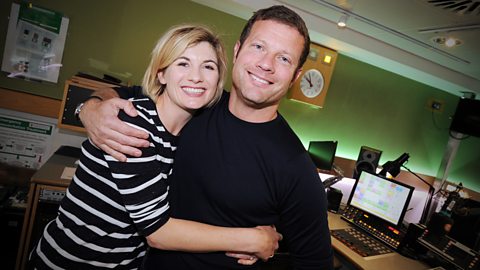
"You can list these thirteen actors and none of us are similar" - Jodie Whittaker on playing the new Doctor Who
Jodie Whittaker joins Dermot to discuss her role as the new Doctor Who.
Doctor Who fans don't have a problem with an alien flying through space and time in an old-fashioned police box, but the thought of a female star was too much for a small number of viewers.
The fans are the most kind and creative and enthusiastic peopleJodie Whittaker
The announcement was met with inevitable grumblings from some people on social media, but luckily Jodie says she was oblivious to any criticism.
"I've missed a lot of the fun stuff and probably the bad stuff because I'm not on any type of social media and never have been," the actress told Shaun Keaveny on 6 Music.
"So if I get something it's a mate screen grabbing something and sending it to me."
However, she added that the response from most fans had been overwhelmingly positive before her turn as the Time-Lady begins.
"I feel like I'm immersing myself into a world that is just – I haven't even done it yet, but the fans are the most kind and creative and enthusiastic people," she added.
"It's so exciting to be a part of that. There are only a few people who know what it's like, there are only 13 of us that know."
-
![]()
Jodie Whittaker joins Shaun Keaveny
Jodie Whittaker joins 6Music's Shaun Keaveny to chat Doctor Who.
Pearl Mackie: The first gay companion
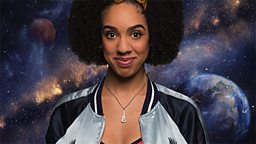
There had been several gay characters in Doctor Who before Bill Potts stepped into the blue box, (Jack Harkness, Madame Vastra and Jenny Flint - for starters) but her relationships and sexuality were the best explored than her predecessors.
It’s about time for a gay main companionPearl Mackie
During Bill's time exploring with The Doctor, she was seen dating girls and falling in love with Heather, who saves her life and whisks her away on cosmic adventures at the end of the 2017 series.
But as Pearl Mackie explained when the series started, being gay was just one small part of Bill's appeal.
"There are so many elements to Bill, there’s so much to dive into as an actor, that her sexuality is quite far down the list of things that I’ve thought about," she told Entertainment Weekly earlier this year.
"For me, I think representation is really important. You know, it’s 2017, so it’s about time for a gay main companion, really."
Freema Agyeman: The first black companion
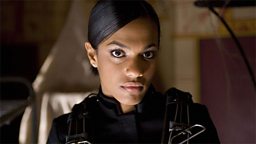
Martha Jones wasn't the first black person to travel in the TARDIS, but she was the first full time companion and brought cultural issues to Doctor Who storylines from 2007.
Even a robot dog had been a full-time Doctor Who companion before a person of colour.
"I never in my wildest dreams thought I'd actually become the new companion," said Freema when she was announced as David Tennant's companion, following the departure of Billie Piper, who played Rose Tyler.
Martha's character raised questions of racial equality during time travel storylines on the show, such as Elizabethan England and depression-era America.
Catherine Tate: The companion who broke the 'love interest' mould
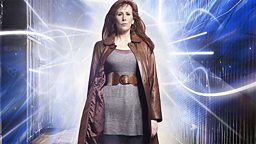
Doctor Who companions are known for falling under the spell of Doctor Who (no matter who's playing him) but not Donna Noble. Catherine Tate's character kept David Tennant on his toes with her no-nonsense approach to time travel.
She is not in love with him, and that makes a differenceRussel T Davies
From the moment she appeared on the show, it was clear that there would be no love story between Donna and The Doctor and instead won over audiences with her sense of humour.
"Donna is much more the Doctor's equal than any of the previous assistants," said writer Russell T Davies in an interview with The Telegraph in 2008.
"She is older and she is not in love with him, and that also makes a difference."
He added that Donna brought a bit of real life to the TARDIS, following the intergalactic almost-romances with Rose and Martha.
"She is flawed. It really is like having me or you on the TARDIS," he said.
















































